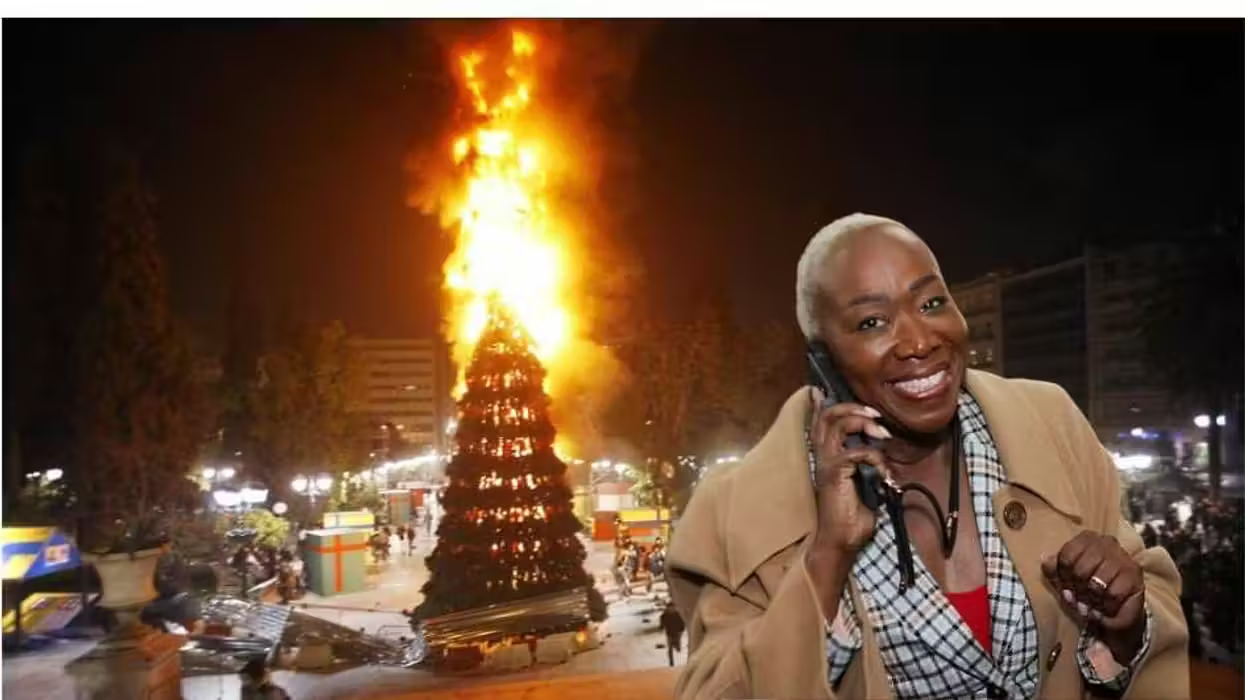
© 2025 Blaze Media LLC. All rights reserved.
Real News': Bloody Hostage Standoff in Algeria in Response to Mali Insurgency Puts Attention on Al Qaeda
January 17, 2013
While all the details are still not clear, a hostage standoff took place at a gas plant in Algeria Thursday where reportedly 20 Al Qaeda-linked gunmen faced off with Algerian special forces. Although Algeria's state news agency reports that the special forces completed a rescue operation to free the remaining, mostly foreign hostages, including two Americans; militants claim at least 35 hostages were killed in the rescue attempt. Algerian state television claims only four died.
The group responsible for the attack has claimed that this is a retaliation for the intervention in Mali – where France has just put more boots on the ground attempting to stop Islamist militants trying to seize the country. Buck Sexton writes in TheBlaze that the insurgency in Mali gives evidence that Al Qaeda is still very much alive and while France has taken the lead in fighting this latest extremist uprising, the United States should still be monitoring the conflict closely.
The extent of America’s role remains an open question. U.S. logistical assistance to French forces in Mali appears a foregone conclusion. Should the Malian Jihad drag out, however the U.S. will have to decide whether shouldering the majority cost of yet another counterterrorism intervention is worth it. With French backing, Mali’s government troops may be able to retake ground and pacify the country, town by town. Until that happens, the momentum lies with AQIM-Jihadist-Touareg alliance that has promised to make France suffer a protracted battle. And so far they appear to be dedicated to the fight and growing in strength.
[...]
Al Qaeda is very much alive, and in few places are its ranks swelling more quickly than Mali. We may never stamp out Al Qaeda from every outpost around the world, and perhaps it is folly to try. But if America is going to have a lighter footprint in Mali, we had better hope there is a competent power to fill our shoes.
Writing in Slate Thursday, Fred Kaplan says we shouldn't overreact to what's going on in Mali, positing that we should “follow the Obama doctrine” as a guide to how to handle situation.
There is something of an “Obama doctrine” for these sorts of conflicts. On the one hand, it acknowledges the war on terror, the need to kill or capture certain bad guys, the importance of dismantling groups like al-Qaida and containing their expansion—especially when allies request our assistance and are in the fight as well. On the other hand, it clearly declares: “No more Iraqs or Afghanistans”—or, as Obama put it a year ago at a Pentagon news conference announcing the results of a major strategic review, “the end of long-term nation-building with large military footprints.” Instead, as stated in the official document that he and Secretary of Defense Leon Panetta signed, the United States “will develop innovative, low-cost, small-footprint approaches to achieve our security objectives.”
And so there are many hot spots in the world where the Obama administration (sometimes President Obama himself) has ordered commando raids or drone strikes on “high-value targets.” In the case of Libya, he joined a NATO military campaign (which had been requested by the Arab League and authorized by the U.N. Security Council) but did not lead it. Rather, the United States focused on providing its “unique capabilities” to the warfront—especially drones (both for providing surveillance and dropping smart bombs), long-range airlift of supplies, and some on-the-ground intelligence assets. This is what some uncharitably called “leading from behind,” and it proved successful.
That’s probably the sort of thing we will do in Mali—and what we should do, if France’s rapid counterblow doesn’t stave off the threat.
The 'Real News' panel opened on the subject Thursday with author Gary Bernstein. Watch a clip below debating what is the best path forward for the U.S. watching these developments in northern Africa:
Want to leave a tip?
We answer to you. Help keep our content free of advertisers and big tech censorship by leaving a tip today.
Want to join the conversation?
Already a subscriber?
more stories
Sign up for the Blaze newsletter
By signing up, you agree to our Privacy Policy and Terms of Use, and agree to receive content that may sometimes include advertisements. You may opt out at any time.
Related Content
© 2025 Blaze Media LLC. All rights reserved.
Get the stories that matter most delivered directly to your inbox.
By signing up, you agree to our Privacy Policy and Terms of Use, and agree to receive content that may sometimes include advertisements. You may opt out at any time.






